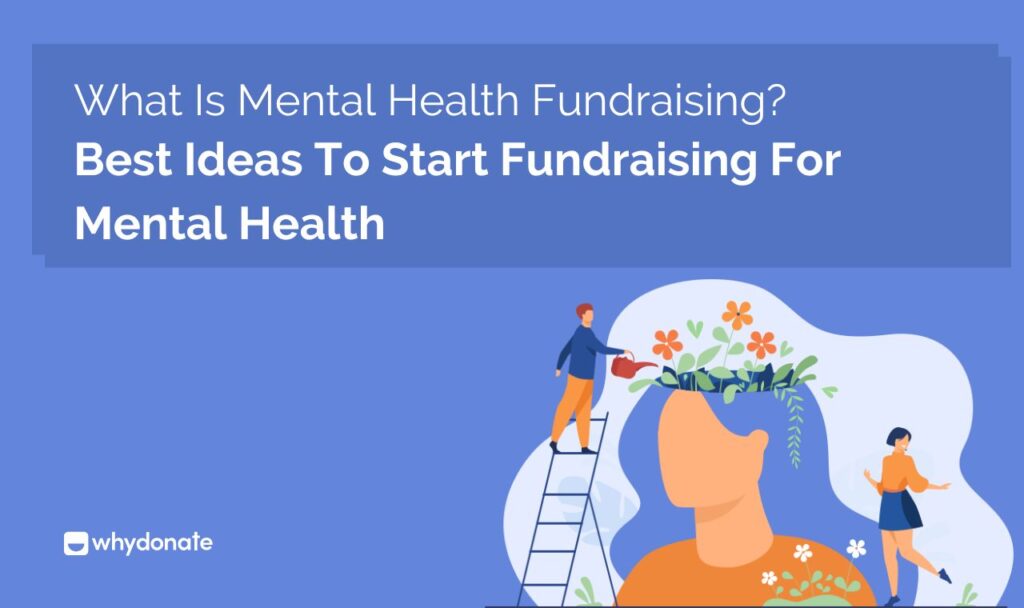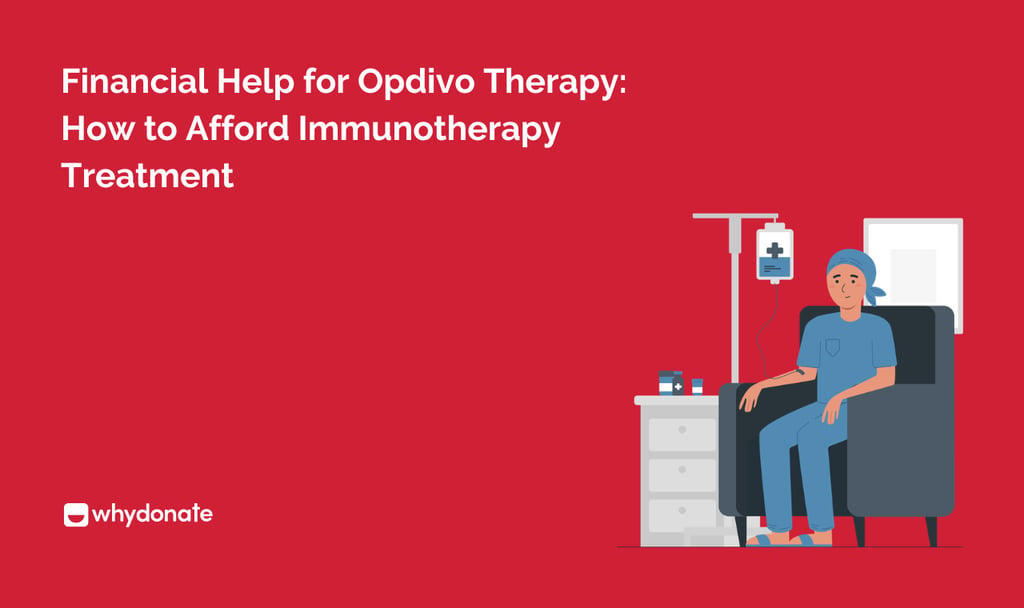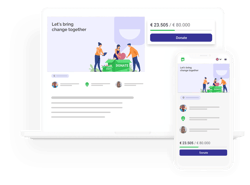Mental health affects us all. Whether you or someone you love has faced depression, anxiety, or trauma, chances are mental health has already touched your life. And yet—millions still struggle in silence due to stigma and lack of access to care.
So, what can you do about it?
Launching a mental health fundraiser is a meaningful, immediate way to support healing, create awareness, and fund critical resources. This guide walks you through how to do it, with heart.
Table of Contents
Why Mental Health Fundraising Is So Important
Let’s start with a fact: According to WHO, nearly 1 in 8 people globally experience a mental health issue. But despite rising demand, support services are chronically underfunded, and help can be hard to find—or afford.
Fundraising helps fill those critical gaps. Through mental health fundraising, individuals and communities can directly support therapy access, crisis intervention, and long-term prevention efforts.Your campaign could:
- Cover someone’s therapy sessions
- Fund mental health programs in schools or communities
- Support nonprofits providing crisis care and prevention
More than money, fundraising says: “You matter. You’re not alone.”

How to Start a Mental Health Fundraiser
Getting started might feel intimidating, but it’s easier (and more rewarding) than you think.
1. Choose Your Cause
Decide if you’re raising funds for:
- An individual in need of treatment
- A nonprofit organization (like NAMI or Mental Health Foundation)
- A school, peer support program, or community outreach
2. Tell Your Story
Why does this matter to you? Your story is the emotional heart of your campaign. Be honest. Be human. If you feel vulnerable, that’s okay—vulnerability connects people.
3. Pick a Fundraising Platform
Choose a fundraising platform that’s simple to use, transparent, and trusted by donors. Look for one that aligns with your goals, makes sharing easy, and effectively supports mental health causes. Many campaigners have found success using platforms like WhyDonate for their reliability and reach.
4. Share It Boldly
Use social media, email, posters, or even local press. A simple post that says “I’m raising funds for mental health—here’s why” can go a long way. Don’t be shy: every share can spark a donation.
5. Keep Supporters Updated
Let people know how things are going. Share milestones, thank donors personally, and celebrate wins together.
Create your mental health fundraiser now—and provide real access to therapy, support, and healing.

Mental Health Fundraising Ideas That Actually Work
If you’re wondering how to raise funds, here are 10 effective and creative ideas—adapted from what’s working for real mental health campaigns:
1. Walks for Wellness
Host a community walk—either in person or virtually—where everyone wears green, the color for mental health awareness. Add fun by encouraging custom T-shirts, signs with empowering messages, or even a pet walk segment. Use the event to not only raise funds but also spread awareness and solidarity.
2. Art Heals Auction
Partner with local artists to curate a collection of art inspired by mental health. Host an online auction where each piece includes the artist’s personal story or message. This allows buyers to connect emotionally with the cause and the creativity, making every bid more meaningful.
3. Mindfulness Marathon
Plan a weekend (or month-long) series of yoga sessions, breathwork classes, journaling workshops, and sound baths. Offer entry for a small donation, or bundle them as a wellness pass. Not only do supporters donate—they leave feeling calmer and more connected.
4. Mental Health Webinars
Collaborate with licensed therapists, counselors, or life coaches to offer webinars on topics like stress management, dealing with anxiety, or building resilience. These can be donation-based or ticketed, and you can invite local sponsors to support the sessions in exchange for visibility.

5. Mental Health Game Night
Organize a game or trivia night themed around feel-good topics, mental wellness facts, or inspirational stories. Host it online or at a local café. Charge an entry fee or let participants donate as they play. Bonus: Award fun prizes for teams that win or are the most creative.
6. “Silence the Stigma” Challenge
Start a social media challenge where people film themselves sitting in silence for 5 minutes—a reflection of the silence many face with mental health struggles. Participants post with your campaign link and tag friends to join. It’s simple, impactful, and encourages donations through peer visibility.
7. Therapy Scholarship Fund
Crowdfund to support individuals who need therapy but can’t afford it. Partner with local clinics or nonprofits for legitimacy and transparency. Sharing real, anonymized stories of people who’ve benefited makes the ask powerful and relatable.
8. Peer Support Merchandise
Design and sell meaningful merchandise—think “You Matter” hoodies or “It’s Okay Not to Be Okay” mugs. Each item becomes a conversation starter that’s always walking. Every purchase supports your campaign and also spreads a powerful, stigma-breaking message.

9. Birthday Fundraiser
Encourage supporters to turn their birthdays into days of impact. Platforms like WhyDonate and Facebook make it easy to set up personalized fundraisers. Share a heartfelt reason why mental health matters to you—and invite friends to contribute instead of giving gifts.
10. Storytelling Open Mic Night
Create a safe space—online or offline—where people can share their journeys with mental health through poetry, music, or personal storytelling. Charge for tickets or offer pay-what-you-can. These nights are often healing, raw, and unforgettable—and deeply supportive of the cause.
Partner With Mental Health Professionals or Organizations
Collaborating with licensed therapists, advocacy groups, or nonprofits gives your campaign credibility and reach. They can help spread your campaign, validate your message, or even guide where funds go for maximum impact.
- Partner with school counselors for student-led events
- Team up with mental health clinics for matching grants
- Co-host events with local mental health charities
Even a short testimonial from a professional can help supporters trust and engage with your cause.
Break the Stigma, Build Connection
One of the greatest barriers to mental wellness is silence. Your fundraiser can change that. Every fundraising story you share, every post you make, and every donation you receive helps normalize the conversation around mental health.
As Bright Harbor Healthcare puts it: “When we talk, we heal.”
If mental health matters to you, now’s the time to act. Start a fundraiser that helps others feel less alone.
Final Thoughts: You Can Help Heal a Life
You don’t need a degree in psychology to make a difference. All it takes is your story, a cause you believe in, and the courage to act.
Whether you’re helping a loved one, supporting a nonprofit, or raising awareness in your community—your fundraiser has the power to create real, lasting change. From covering therapy sessions to opening up tough conversations, this is how healing begins.

















